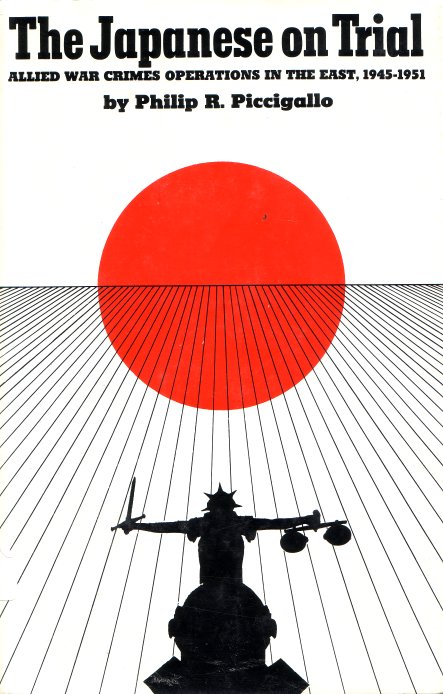
The Japanese on Trial: Allied War Crimes Operations in the East 1945-1951 (1979)

As the title notes, this is a book on the actual war crime trials of the Japanese after the end of World War II. Although the entire book is interesting, two points stand out for me:
As a result of Allied Military Commissions, 920 Japanese were condemned to death and around 3,000 were sentenced to prison terms. As a result of the International Military Tribunal at Tokyo (1946 to 1948), 25 “major” Japanese war criminals, including Tojo, were tried and sentenced for “plotting and waging the Pacific War.”
The other major point of interest for me was the books material on Emperor Hirohito, who was not subject to trial.
”Emperor Hirohito, too, escaped indictment. Announced June 18, 1946, this strictly American decision caused perhaps more furor in Allied circles than any other relative to war crimes policy.”
The book notes that the decision to give immunity to the Emperor was really a political decision. The Allied powers were worried about what would happen in Japan if the Emperor was to be tried and especially if he was to be found guilty.
”Aboliton of the sacred (to Japanese) institution of emperor, American policymakers reasoned, would have provoked chaos, even violence, among the population.”
The book notes that all the Allies agreed to the decision not to prosecute the Emperor.
Exactly how much the Emperor was personally involved in the actions of the war has been the subject of other books, with opinions ranging from “he didn't have any actual power, the military was in control, and so he was basically really innocent” on through “he took an active part in the planning of the war itself and thus was guilty and should have been put on trial.”
Main Index
Japan main page
Japanese-American Internment Camps index page
Japan and World War II index page
|